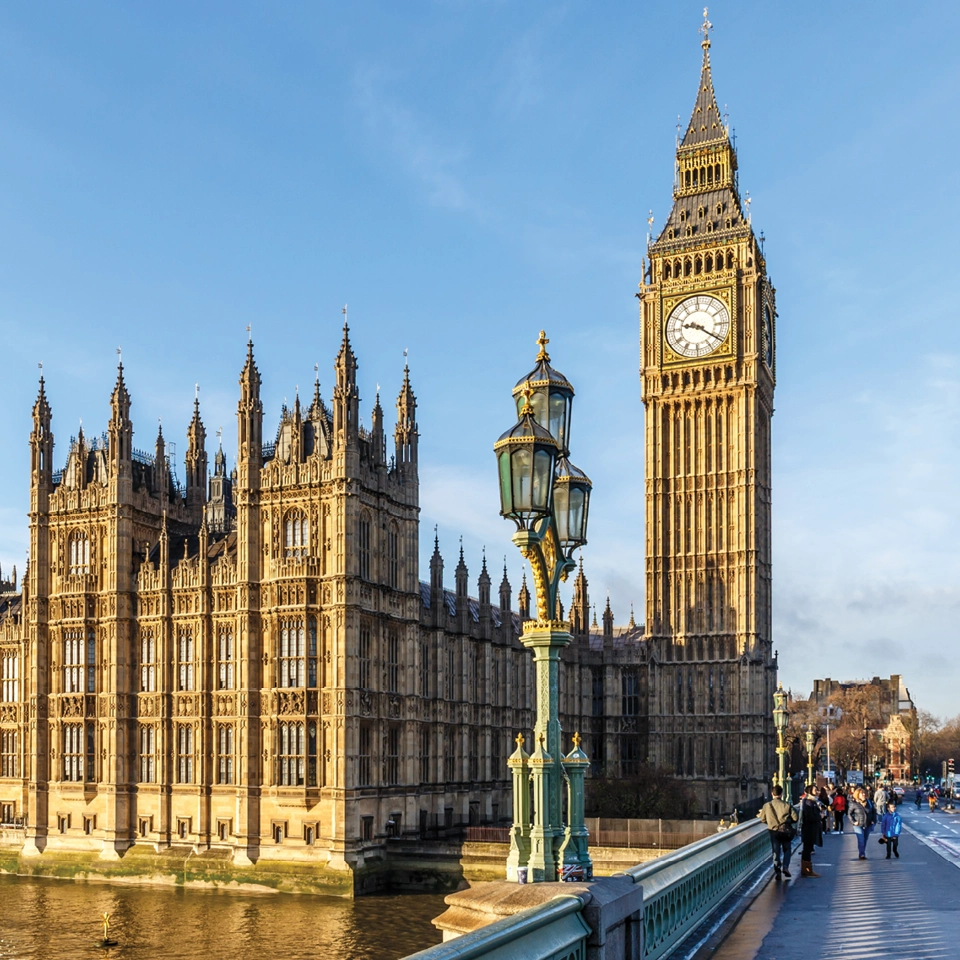How the Chancellor’s statements affect savings & investments
We explore how the Chancellor's Budgets can impact savings and investments, so you’ll know what to look out for in future Budget statements.
This article is not advice. If you would like to receive advice on your savings and investments, consider speaking to a Financial Adviser.

Chancellors’ Budgets outline the government’s plans for raising or lowering taxes for the following financial year. They also cover the government’s plans around other financial decisions such as spending on health, schools, police and other public services.
Should the Budget announce measures that result in interest rates rising, it can be great news for savers looking for a good return on their high-interest savings account. With this in mind, savers and investors should watch the market closely after a Budget statement to see how the financial plans unfold, and how they will affect their finances.
Here, we’ll explore how the Chancellors’ Budgets can impact savings and investments, drawing attention to how Budget statements can have a knock-on effect on interest rates rising or falling during a recession. With this knowledge, you’ll know what to look out for in future Budget statements.
What is the Chancellor’s Statement?
Each year, the Chancellor of the Exchequer delivers the Budget of His Majesty’s Government, also known as the Financial Statement, to the House of Commons. The statement details the current state of the economy, and the tax and spending changes proposed. The Budget statement is one of two statements made every 12 months – one in the autumn, followed by the Spring Statement the following year.

The first half of the statement typically reviews the nation’s finances and economic situation, while the second discusses proposals for taxation. So, should the country be in economic contraction or downturn, such as facing a recession, this can impact the stock market and interest rates. During a recession, the statement usually cuts spending in areas such as defence and universal credit, and raises taxes for businesses and higher earners.
How does the statement impact savings?
How the Chancellor’s statement impacts savings depends on the state of the markets and economy at the time. If the statement increases confidence in the markets, then share prices in the affected sectors should rise – driving profits for both investors and banks.
The Chancellor’s statement can cause significant fluctuations in share price values – so, as an investor, the value of your pension or investment portfolio can increase or drop in value overnight. Whereas, while a high-interest savings account won’t lose its total value overnight, it may lose future earning potential if interest rates were to drop as a result of the statement. With this in mind, you may consider a cash deposit platform like Flagstone, that lets you move your money between several savings accounts and a range of interest rates from across the market.
How does the statement impact investments?
When the economy is struggling, like during a recession, you can expect to see lower stock market prices and higher levels of volatility.
Should a future Chancellor’s statement draw attention to negative economic growth, investors may choose to focus on protecting their capital by investing cash, rather than seeking returns on higher-risk equities.
While high-net-worth investors are unlikely to feel as much strain during economic decline, many small investors are likely to be affected by increased tax on dividends and capital gains. As an investor, diversifying your portfolio across a range of assets such as bonds, property, equities and commodities (across different sectors) can help to position your portfolio against potential damage during an economic downturn.
Is your money safe in a savings account?
If you’re depositing large amounts of money into a savings account, you’ll want to know your cash is protected. You’ll be pleased to know that savings accounts regulated by the Financial Conduct Authority (FCA) are protected up to £85,000 under the Financial Services Compensation Scheme (FSCS). This threshold applies per financial institution, not per savings account. So, if you have two separate accounts held with the same bank, you’d risk losing any savings above £85,000. For security, consider avoiding holding more than that amount with any one bank.
Under the FSCS, if the bank, building society or credit union were to go under or close, you should normally get your savings up to this amount back to you within seven working days – but this can take longer depending on your individual circumstances. Often, claims from other financial products and services can take longer to process.
So, make sure to check that your savings accounts are regulated by the FCA and is also protected under the FSCS, to safeguard your wealth. With this in mind, a cash deposit platform like Flagstone allows you to easily spread your deposits across multiple accounts to maximise your financial protection.
How does inflation affect your savings?
While inflation often causes interest rates to rise, which can offer you a higher return on your savings, your savings are at risk of losing value in real terms. For example, if inflation averages at 3% for the next five years, what costs you £1,000 in 2023 would cost you £1,159.27 in five years’ time.
Read more: Understanding inflation, the base rate, and GDP
How much can you earn from high-interest savings?
How much you can earn from a high-interest savings account depends on several factors, such as the current economy, the type of savings account you choose, and the Bank of England base rate. Looking for the best return on your savings? You can access a selection of interest rates across our market-leading banking panel with just one straightforward application. Our cash deposit platform offers access savings accounts from up to 60+ banks, with exclusive rates so you can watch your funds grow.
See how much interest you could be earning.
Use our cash deposits calculator



